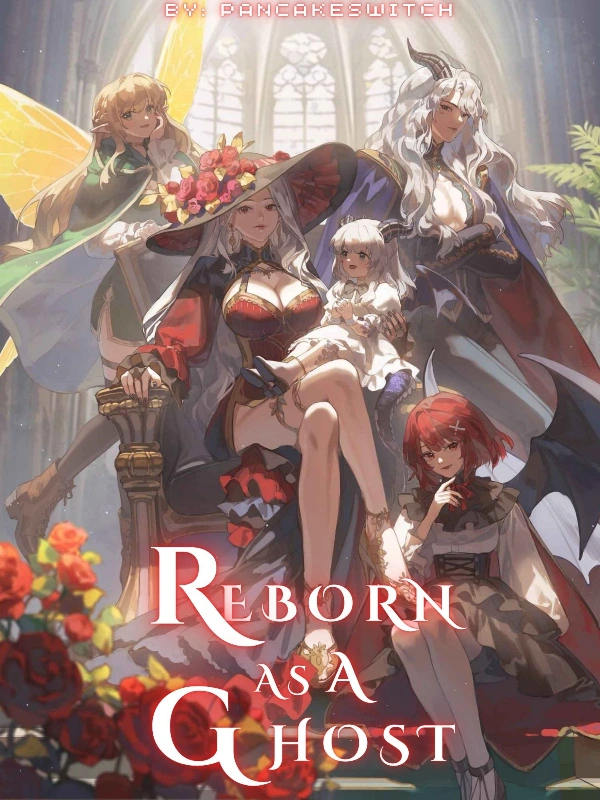Tsar Nicholas the II stood in his palace gazing out the windows which displayed a vision of his palace gardens, and the city of Saint Petersburg below. The Winter Palace was the official residence of the house of Romanov and had been since 1732. It was a large and luxurious estate, the type that only the wealth of an entire empire could afford to build.
You see the thing was, the Great European monarchs of the early modern era had built multiple palaces for themselves, each one of which was so grand in size, scale, and opulence that the world’s wealthy merchant elite of the 21st century could only gaze upon them with envy as their meager fortunes could not possibly construct such an abode for themselves.
And from Bruno’s perspective, or at least during that of his past life, when he went by the name of Karl. The world would never see such a grand display of architectural achievement ever again. But the year was 1904, and winter was vastly approaching. It was because of the era that the house of Romanov thought nothing of how grand their estates were.
It was perhaps because the Tsar took his wealth for granted, while his people lived in a state of relative destitution that things had progressed as far as they had with the ongoing Bolshevik revolution. One which was starting to spiral into a full scale civil war.
A month had passed since the Kaiser first announced the formation of the German volunteer force knowns as the Iron Brigade. And according to the most recent reports from the Tsar’s generals, the so called “Red Army” had nearly tripled in size. Previously being 100,000 men strong, they now had more than a quarter of a million forces at their disposal.
Defections from the Tsar’s army had not helped the matter. And these ragtag Marxists were now gaining valuable training from the veterans of the Russo-Japanese War, which had only concluded a few months prior.
With all of this in mind, the Tsar was starting to consider the idea of abandoning his family’s home, the estate which had housed them for multiple generations. And instead of fleeing further east to a city where Bolshevik activity was less intense.
Meanwhile, one of the Tsar’s generals approached him, the man went by the name of Anatoly Mikhaylovich Stessel, and he was the man now in charge of the Russian Army, after the previous General in charge had been removed from his post, what with being held responsible for Russia’s defeat in Manchuria.
Anatoly Stessel was a man of German descent. And it was perhaps because of this that he was slightly more sympathetic to the German Reich than other Russian Military Leaders. But at the moment, he had a rather ugly expression on his face as he announced the latest news to the Tsar.
“Your Majesty, I hate to be the bearer of bad news. But the Red Army has amassed 50,000 men who are marching to Saint Petersburg as we speak. They plan to encircle the city and besiege it.
It would be best if you and your family escaped now, rather than being caught in the city. I assure you that my men and I will fight to the last man to prevent your home from falling into the hands of these damned peasants!”
So, the time had finally come? The Red Army was finally baring its fangs in ways other than mere ambushes in the streets? 50,000 men sought to encircle Saint Petersburg, and seize it for themselves… What was next? All of Ingria?
The Tsar’s worst fears had been realized, and he was quick to sigh heavily, ultimately nodding his head in agreement with the General’s proposal as he did so.
“Very well. I will have the servants begin packing immediately. My family and I will flee to the safety of Siberia where the Reds have yet to spread their influence. I trust you to ensure that this city does not fall into the hands of the rebels, General…”
After saying this, the Tsar walked off without saying another word. The city of Saint Petersburg was about to come under siege. And there was no telling how the Tsar’s soldiers left in the city would handle the situation.
Within the week, the Tsar and his family would indeed flee to Siberia, where they hoped to wait out of the rest of the war safe and sound. Meanwhile, his supporters in Saint Petersburg would be forced to endure a siege that would be remembered throughout history as being particularly brutal.
—
By the end of December, Bruno’s recruitment efforts had been fully manifested. The Iron Brigade was now composed of six thousand men. 5,000 Infantry and 1,000 Artillery soldiers from the German Army and Naval Infantry had volunteered to enter Russia and fight on behalf of the Tsar to end the Bolshevik Revolution and the spread of communism once and for all.
Bruno had said goodbye to his family, assuring them that he would be home safe and sound before they knew it. After one last farewell to his wife and kids, he stepped out of his home, dressed in the uniform of the Iron Brigade, where he would be sent on a train to the city of Danzig. In Danzig’s port lie Russian transport vessels which were docked, and waiting to carry Bruno and his men to Saint Petersburg.
When Bruno arrived in Danzig, he saw his men all lined up. Considering they would be fighting in Russia during the winter, Bruno had gone out of his way to provide proper winter clothing to his soldiers. The last thing he needed was for them to end up freezing to death due to the severity of the weather.
Because of this, the men were dressed from head to toe in warm wool clothing. And they sported flashy greatcoats modelled after the 1915 design used in the Great War By German soldiers in Bruno’s past life.
Of course, these great coats, like everything else the soldiers wore were black. In addition to this, the soldiers wore puttees to keep the mud and snow out of their boots, and from affecting their feet.
Not only that, but knowing that they would be walking into battle against the Red Army who by now had captured artillery from the Russian Army. Bruno decided to mitigate casualties by introducing a piece of equipment that could save many lives.
I’m talking of course about the Stahlhelm, specifically the model 1916 variant used during the Great War of Bruno’s past life. It was painted black and emblazoned with the white, red, and black coat of arms of the German Reich on the sides of it.
When foreign nations observe the conflict, and noticed the effectiveness of issuing soldiers a steel helmet in preventing head injuries from shrapnel, it would no doubt spur the other major powers to develop their own. Something that would once more change the timeline.
But the lives of Bruno’s soldiers were something precious to him. And since he was given control over the outfitting of his soldiers, he had not neglected this important asset. Because of this equipment, all of which was modelled after that used by German soldiers in the Great War, which would not occur until another ten years had passed.
The Iron Brigade looked almost futuristic to those civilians who cheered for these brave souls who were going to fight abroad to protect a foreign monarch from the dangers of communism. All the while women threw flowers at their feet as they prepared to deploy to fight in a foreign land.
After all, the press had been posting many negative things about the Red Army. Some of which was truth, others were exaggerations. While a minority were blatant propaganda. But the German papers which printed such news had shifted the perspective of the Reich’s citizens in regards to Marxism and all of its derivatives.
To put it simply, anyone who proclaimed themselves to be a Marxist, a socialist, a communist, et cetera would be given dirty looks by the common man. And this was no doubt a method of Bruno’s influence, who had bought significant shares in every facet of the Reich’s media with the fortune he had gained.
Influencing public opinion was a powerful tool. One which he intended to employ to gather support for the Kaiser, and to demonize his enemies in the coming years. Only now was Bruno beginning to make use of these methods.
And its effects were already starting to take place. As for Bruno, the moment he stood before his personal army of 5,000 soldiers, he saluted them all. While making a brief speech to them.
“I wanted to take a moment to thank you all for volunteering for this expedition to the Russian motherland. No doubt each and every one of you is a patriot of the highest order. Because, contrary to common belief, we are not simply marching to a foreign country to fight a war that has no interest in the German Reich and its citizens.
Instead, I would assert that the ideology of Marxism is an enemy to all of humanity. As are those who practice it! And as humans ourselves, no doubt it is in our interest to combat this toxic and deadly ideology wherever it may appear in this world.
The Bolsheviks have taken up arms against the Tsar. They intend to plunge the Russian Empire into a state of anarchy. All with the intent of overthrowing a perfectly functional society in the name of their antihuman doctrine. One which will no doubt require the deaths of millions of innocents to enforce.
It is because of this fact that we stand here today as the vanguard against Marxism. In the name of Kaiser, God and Fatherland. I beseech you to stand firm and fight the enemies of the German Reich, and its people!”
The Iron Brigade responded to Bruno’s brief speech with a chant of their own.
“God With Us!”
After which they would board the Russian transport ships and embark towards Saint Petersburg, which by now was already neck deep in a pile of corpses as the Russian Army desperately defended against the Bolshevik siege.


















